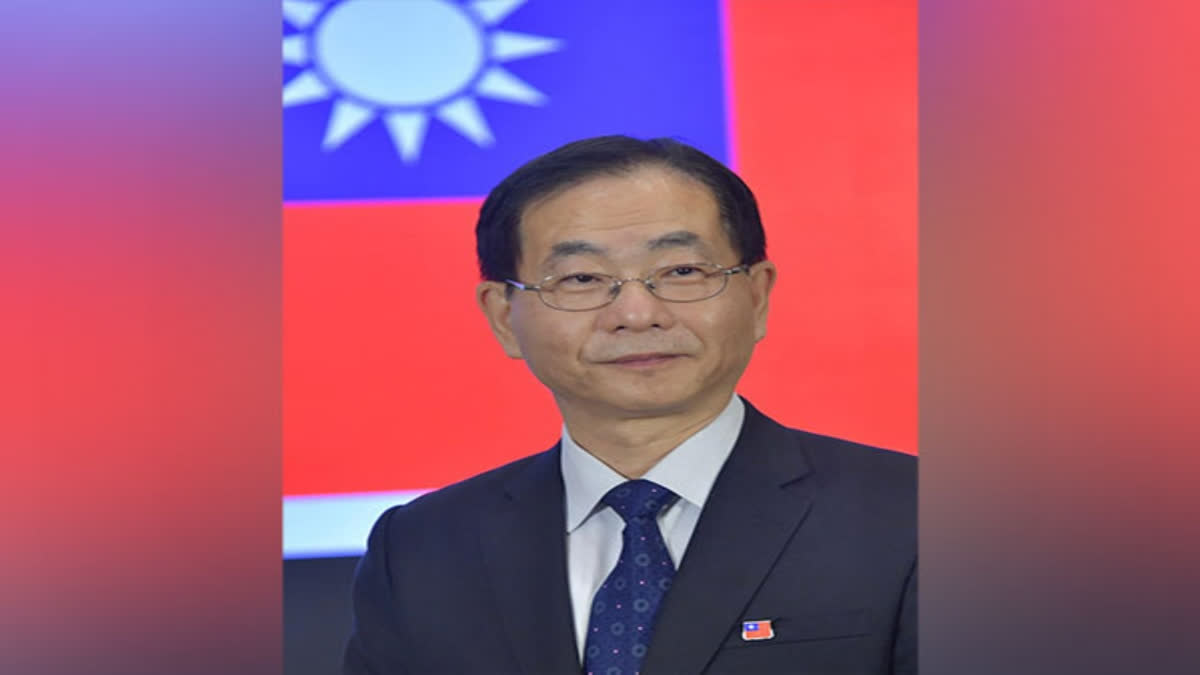New Delhi: Taiwan is looking forward to joining hands with India and other like-minded partners to strengthen the global supply chain and safeguard peace and stability across the Taiwan Strait and Indo-Pacific, Taipei's de-facto Ambassador Baushuan Ger has said. Without naming China, the envoy said Taiwan, confronted by "unceasing cross-Strait military intimidation and grey-zone threats", has continued to strengthen its self-defence capabilities and has consistently strived to serve as a force for good.
China has been ramping up its military offensive against the self-ruled island of more than 23 million people, triggering global concerns. "While we remain eternally grateful that the preservation of peace and stability across the Taiwan Strait is becoming a matter of consensus in the international community, we will continue to do our utmost to protect our hard-won democratic way of life without bowing to pressure," Ger said.
He made the remarks at a reception on Friday night that was organised to celebrate the upcoming Taiwanese National Day, which is on October 10. Ger said Taiwan will continue to play a crucial role in securing a resilient and robust global supply chain that protects critical technology from "exploitation".
"As more countries look to preserve shared prosperity by diversifying their sourcing options, Taiwan, by way of its leading edge in the semiconductor sector, is willing and ready to continue to play a crucial role in securing a resilient and robust global supply chain that protects critical technology from exploitation," he said.
"As such, we look forward to joining hands with our like-minded partners, including India, to strengthen the global supply chain, so as to safeguard peace and stability across the Taiwan Strait, to ensure a free and open Indo-Pacific and to maintain the rules-based international order," he added.
Taiwan produces over close to 60 per cent of the world's semiconductors and over 90 per cent of the most advanced chips that are required for almost all electronic equipment such as smartphones, car components, data centres, fighter jets and AI technologies. India has been very keen on having a manufacturing facility of Taiwan Semiconductor Manufacturing Corporation (TSMC), the world's largest chipmaker whose clients included Apple.
China considers Taiwan as its breakaway province and insists it should be unified with the mainland, by force if necessary. Taiwan, however, sees itself as completely distinct from China. "Over the years Taiwan and India have nurtured a natural and reliable partnership. Our two countries may be thousands of miles apart, but our shared commitment to democracy, freedom, respect of human rights and rule of law is instrumental in our joint efforts to deepen bilateral cooperation across the board," Ger said.
"Although the Republic of China and the Republic of India maintained brief diplomatic relations from 1947 to 1949, it is not until 1995 when Taiwan and India re-established representations in Taipei and New Delhi," he said. "In addition to our Chennai office in 2012, I am pleased to announce that our third mission, the Taipei Economic and Cultural Center in Mumbai, will be open soon early next year," Ger said.
The de-facto ambassador said through these three missions, Taiwan looks forward to working closely with its partners across India to bring the bilateral ties to historic heights. "Given the convergence of Taiwan's 'New Southbound Policy' and India's 'Act East Policy', on the economic front, the bilateral trade volume reached a record high of 8.4 billion USD in 2022. It's a 10 per cent increase than the year before," he said.
India is Taiwan's 17th largest trading partner and under the "Make in India" policy, the total investment of Taiwanese enterprises in India has exceeded USD 4 billion covering areas from footwear, machinery, automobile components to petrochemical and ICT products, he said. "With mutual agreements signed last year focusing on intellectual property rights, product standardisation and traditional medicine, we look forward to further expanding trade and investment with more mutually beneficial arrangements to be concluded in the coming years," Ger said.
"In the area of education cooperation, we have so far set up 29 Taiwan Education Centres across Indian university campuses, where over 12,000 Indian students have taken up Mandarin courses taught by teachers from Taiwan," he said. At present, over 3000 Indian students are studying in Taiwan.
Though India and Taiwan do not have formal diplomatic ties, the bilateral trade relations have been on an upswing. In 1995, New Delhi set up the India-Taipei Association (ITA) in Taipei to promote interactions between the two sides and to facilitate business, tourism and cultural exchanges. India-Taipei Association has also been authorised to provide all consular and passport services. In the same year, Taiwan too established the Taipei Economic and Cultural Centre in Delhi. (PTI)



